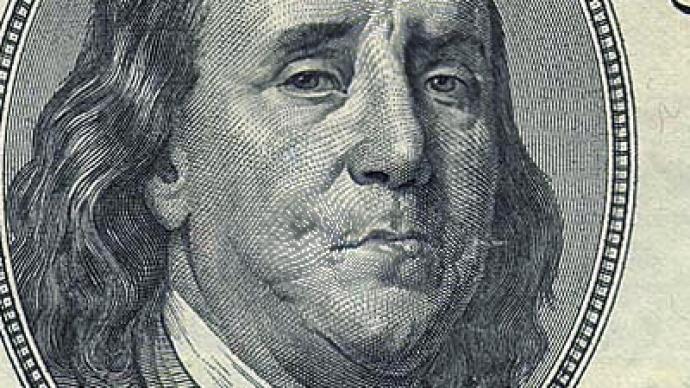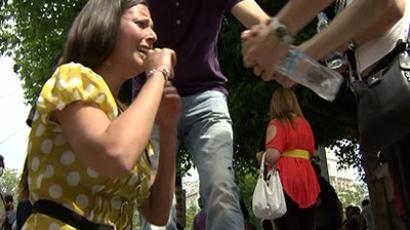Economy in dire straits

Two and a half years after the collapse of this nation’s economy, the dust is still settling and decisions on how to best rebuild are still in the works.
US Treasury Secretary Timothy Geithner says,“The economy needs to grow to create jobs."“Our basic challenge is to try to figure out how to make growth faster and more sustainable to translate into more jobs.”The lack of jobs has led to widespread homelessness in many of this nation’s cities…and a foreclosure rate still too high to give most Americans any hope. “The majority of Americans are understanding that this is not the recession that they had experienced in the past, this is the second Great Depression,” said George Hemminger, Founder of Survive and Thrive TV.The unemployment rate is still hovering above nine percent, and this already grim picture is painted even grimmer by economists. “In the United States I believe it’s 9.1 percent, but when you add in the under-employed, the part time workers who want full time work and can’t find it, discouraged workers, people who have dropped out of the labor market, it’s more like one-out-of-five Americans,” said Timothy Connova, a professor of economic law at Chapman University.Michael Snyder, founder of TheEconomicCollapseBlog.com, says that when you take into account all of the unemployed and under-employed, the tally of those Americans approaches a quarter of a hundred million residents.Snyder also adds that, given the current economic crisis in Greece, a ripple effect could come across the sea to cripple the American market. “What you have in Greece is a situation where they are just kicking the can down the road,” says Synder. “If Greece defaults…it will affect all of Europe.”From there, he says, America would soon follow.A proposed solution to the economy was the $30 billion Small Business Lending Bill, signed into law in September by President Obama. Only 869 applications have been filed, and so far zero dollars have been given out. The majority of small banks haven’t even applied. “We do not have the capacity and the program does not give us the ability to force banks to lend,” said US Treasury Secretary Timothy Geithner.Many solutions proposed by the Obama administration continue to ignite anger. “Mr. Secretary, On behalf of the business owners in North Carolina and across this country, you are wrong,” said Rep. Renee Ellmers (R-NC) at The House Small Business Committee Hearing. Also happening, and with no apparent progress, the struggle by Vice President Joe Biden and lawmakers to find an agreement to raise the debt ceiling. As the deadline looms closer, there is increasing talks of a short-term agreement, as well as reports of lawmakers resorting to creative accounting and gimmicks to exaggerate the size of spending cuts.Finally, with QE2 expected to end in a week, many worry about what lies ahead. Some are even concerned the US could soon be faced with the same issues as Greece, where austerity measures have already been put into place. “I don’t know what the end result will be but maybe will be a night when American people will get fed up with this and will storming the gates of Washington DC with pitchforks,” Hemminger said.














